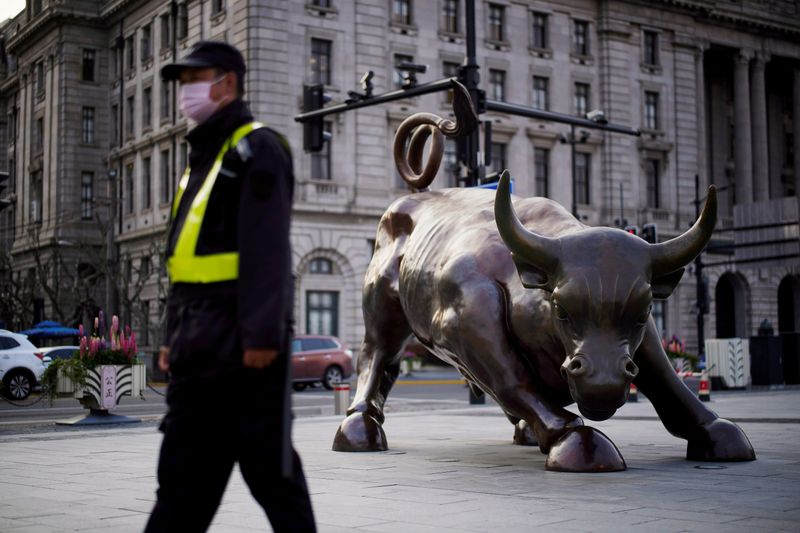This post was originally published on this site

Investing.com– Most Asian stock markets recovered from recent losses on Tuesday, tracking a recovery in Wall Street as markets bet that a pronounced economic slowdown will push the Federal Reserve into softening its hawkish stance.
Hong Kong and Chinese stocks were among the biggest gainers for the day, recovering from steep losses in the prior session amid growing concerns over China’s political climate and sluggish economic growth.
The Hang Seng index rose 1% after plummeting 6.4% on Monday, while China’s bluechip Shanghai Shenzhen CSI 300 index added 0.9% after a nearly 3% loss.
Still, sentiment towards the country remained strained as markets feared more government-driven disruptions to the economy, particularly after Beijing reiterated its commitment to its strict zero-COVID policy.
Concerns over U.S. restrictions on semiconductor exports to China also weighed. The Taiwan Weighted Index, which is heavily exposed to the Chinese market, slipped over 1%.
Broader Asian markets rose tracking gains on Wall Street. U.S. stock indexes rose sharply overnight despite substantially weaker-than-expected business activity data, as markets bet that more economic turmoil would force the Federal Reserve into eventually curbing its pace of interest rate hikes.
Reports on Friday suggested that the central bank was considering such a move later this year, although Fed officials have maintained that curbing inflation is their main priority.
Still, markets trimmed their expectations that the Fed will hike rates by 75 basis points in December. The central bank is still expected to hike rates by a similar margin in November.
Rising interest rates were the biggest weight on Asian markets this year, as COVID-era liquidity measures dried up and as higher yields weighed on the attractiveness of risk-driven assets.
Japan’s Nikkei 225 index rose 1.3% on Tuesday, while India’s Nifty 50 index added 0.2%.
Still, trading volumes across much of Asia were limited due to holidays in the region.
Focus now turns to the third-quarter earnings season for more cues on how corporates were able to navigate rising interest rates this year.
Third quarter U.S. economic growth data, due later this week, is also expected to shine more light on the potential damage of rising interest rates on the economy.


